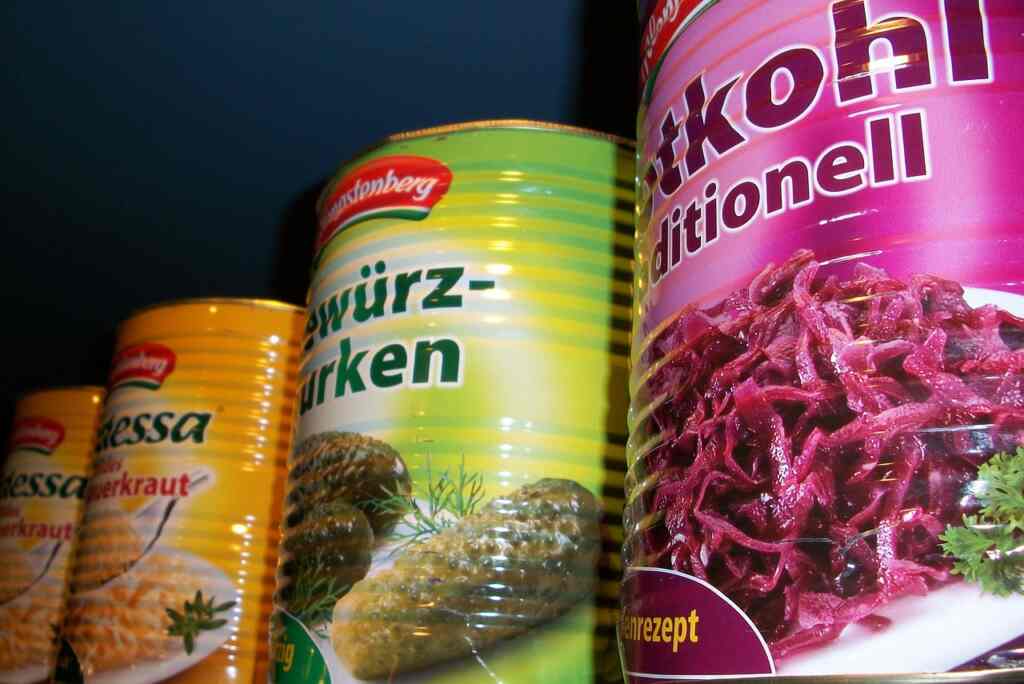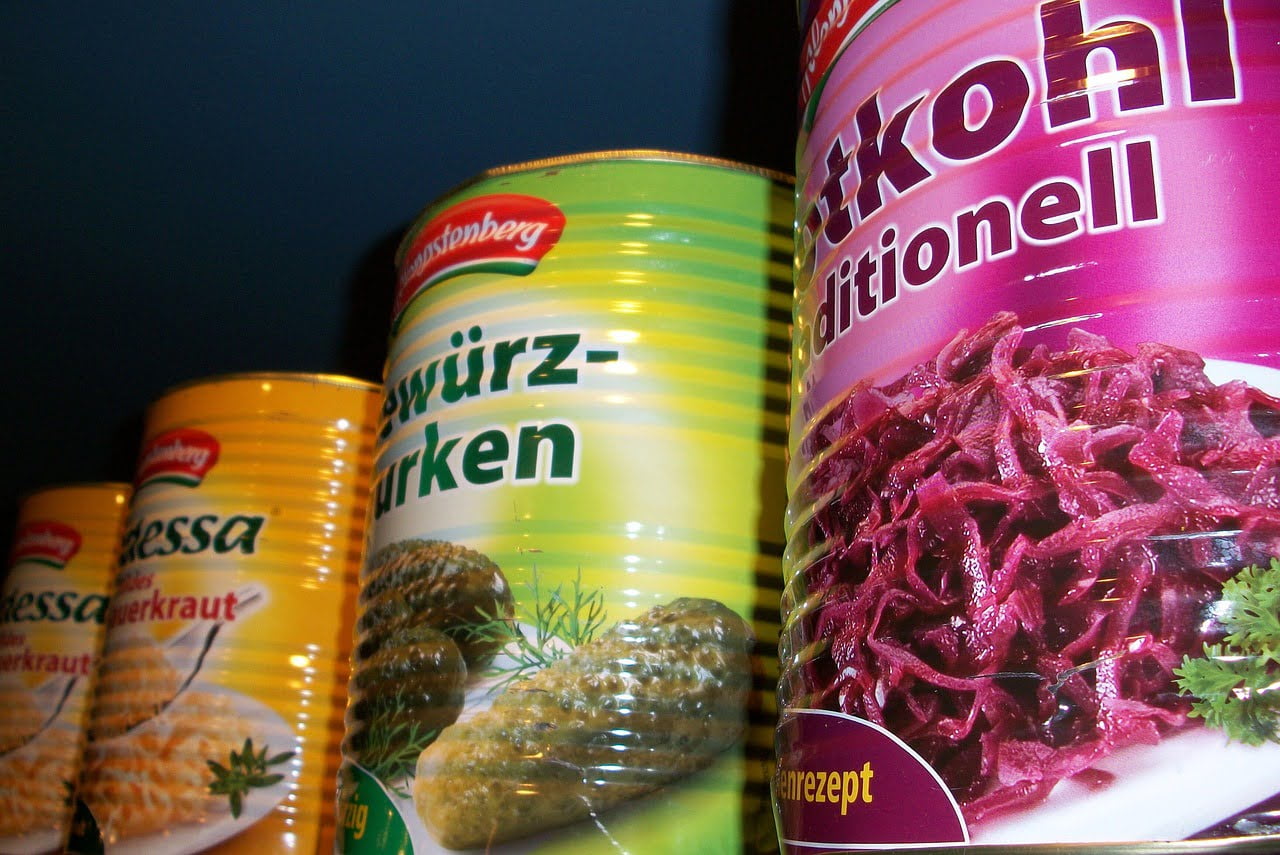Can we eat expired canned food?
Canned foods are a convenient and long-lasting staple in many households. However, there may come a time when you discover a forgotten can in the back of your pantry, and you wonder whether it’s still safe to consume after its expiration date. Can you eat expired canned food, or is it best to err on the side of caution? Let’s explore the guidelines and risks associated with consuming canned goods past their expiration dates.
Understanding Expiration Dates
Understanding expiration dates is a critical aspect of responsible canned food consumption. These dates are not arbitrary; they serve as valuable indicators of a product’s freshness and safety.
One common type of expiration date is the “best by” or “use by” date. This date suggests the time frame during which the product is expected to be at its peak quality in terms of flavor and texture. Beyond this date, the food might still be safe to consume, but there could be a decline in its quality. Understanding this distinction helps consumers make informed choices about the freshness of the product.
Another type of expiration date is the “expiration” or “sell by” date. This date signifies the manufacturer’s estimate of when the product is no longer at its peak quality and may be less safe to consume. It serves as a more conservative guideline compared to the “best by” date and is particularly important for perishable items.
The safety vs. quality distinction is crucial when dealing with expiration dates. While consuming a product after its “best by” date may result in a slight decline in quality, it is generally safe. However, when dealing with the “expiration” or “sell by” date, especially for perishable or high-risk items like meat or seafood, caution is advised.
Inspecting Cans for Damage
Inspecting cans for damage is a fundamental practice when it comes to ensuring the safety and quality of canned food. The condition of the can itself plays a pivotal role in preserving the contents, and a thorough inspection is the first line of defense against potential issues.
One of the most common types of damage to be vigilant about is dents. While small dents are typically harmless, significant or deep dents, especially those along the seams of the can, can compromise the seal’s integrity. Likewise, rust on the exterior of a can is a clear indicator of potential damage to the interior seal and should be treated with caution.
Bulging or swelling cans are another critical aspect of inspection. Bulging cans signal the presence of gas inside, which can be a sign of spoilage or bacterial growth. Recognizing this issue promptly can prevent potential foodborne illnesses.
To conduct a proper inspection, visual examination is essential. Carefully scrutinize each can for signs of dents, rust, bulging, or any other forms of damage. Additionally, running your fingers along the seams and edges of the can can help detect irregularities or leaks that may not be immediately visible.

The Role of Vacuum-Sealed Cans
The role of vacuum-sealed cans in the world of canned food preservation is paramount. These specialized cans offer a unique approach to extending the shelf life and maintaining the quality of various food items.
Vacuum-sealed cans, unlike traditional cans, remove the air from within the can before sealing it shut. This process creates a low-oxygen environment, which is highly effective at preserving the freshness and preventing spoilage of the enclosed food.
One of the most significant advantages of vacuum-sealed cans is their ability to significantly extend the shelf life of canned food. By reducing the presence of oxygen, which can lead to spoilage and oxidation, these cans help ensure that the food inside remains safe and flavorful for an extended period.
Moreover, vacuum-sealed cans excel at preserving the quality of food. Items stored in these cans tend to maintain their original flavor, texture, and nutritional value for a more extended period compared to conventionally sealed cans. This preservation of quality makes vacuum-sealed cans an ideal choice for long-term storage.
Storage Conditions Matter
Storage conditions matter significantly when it comes to preserving the quality and safety of canned food. The way you store your canned goods can have a profound impact on their shelf life and overall condition.
Temperature plays a critical role in food preservation. It’s essential to store canned goods in a cool, dry place with temperatures typically ranging from 50°F to 70°F (10°C to 21°C). Extremes in temperature, whether it’s the sweltering heat of an attic or the freezing cold of a garage, should be avoided as they can accelerate the spoilage of canned food.
Moisture is another critical consideration. Canned goods should be kept far from areas prone to moisture or humidity, as dampness can lead to rust and compromise the integrity of the can’s seal. Storing cans on damp surfaces or in basements susceptible to water leaks should be avoided.
Furthermore, temperature fluctuations should be minimized. Consistency in storage temperatures is crucial, as frequent changes in temperature can affect the quality of canned food. Temperature extremes can lead to the expansion and contraction of cans, potentially resulting in seal breaches and spoilage.
Risks And Considerations
When it comes to the risks and considerations associated with consuming expired canned food, it’s essential to be acutely aware of potential health hazards and exercise caution.
The primary concern with expired canned food is the risk of food spoilage. Over time, the quality, taste, and nutritional value of the food may degrade. While this may not necessarily make the food unsafe to eat, it might be less appealing, leading to dissatisfaction with the dining experience.
In some cases, expired canned food can become contaminated with bacteria, which can lead to foodborne illnesses. High-acid foods, like tomatoes and fruit, are particularly susceptible to spoilage. If you notice any signs of spoilage, such as off smells, unusual textures, or discoloration, it’s imperative to err on the side of caution and discard the food.
A more severe concern, albeit relatively rare, is the risk of botulism associated with canned food. This risk is especially applicable to low-acid foods like vegetables and meats. Botulism is a potentially life-threatening illness caused by the Clostridium botulinum bacteria. Symptoms include muscle weakness, vision problems, and difficulty swallowing. If there is any suspicion that a can may be compromised, it should not be consumed.
Furthermore, even if canned food is technically safe to eat after its expiration date, its quality may have significantly declined. The taste, texture, and nutritional value of the food may not be as desirable as when it was fresh, leading to a subpar culinary experience.
Conclusion
While consuming canned food past its expiration date can sometimes be safe, it’s crucial to exercise caution and use common sense. Inspect the can, assess its condition, trust your senses, and be aware of the type of food you’re dealing with. When in doubt, it’s often best to discard the expired canned food to avoid any potential health risks. Proper storage and rotation of canned goods can help minimize the chances of having to make such decisions in the first place, ensuring that your pantry remains a source of safe and nutritious food.
This article is reviewed by Russel, before publishing. If you have any doubt, you can contact us or consult with your nearby doctor. Remember, in medical matters, there is no same advice, cure, and medicine for all.







